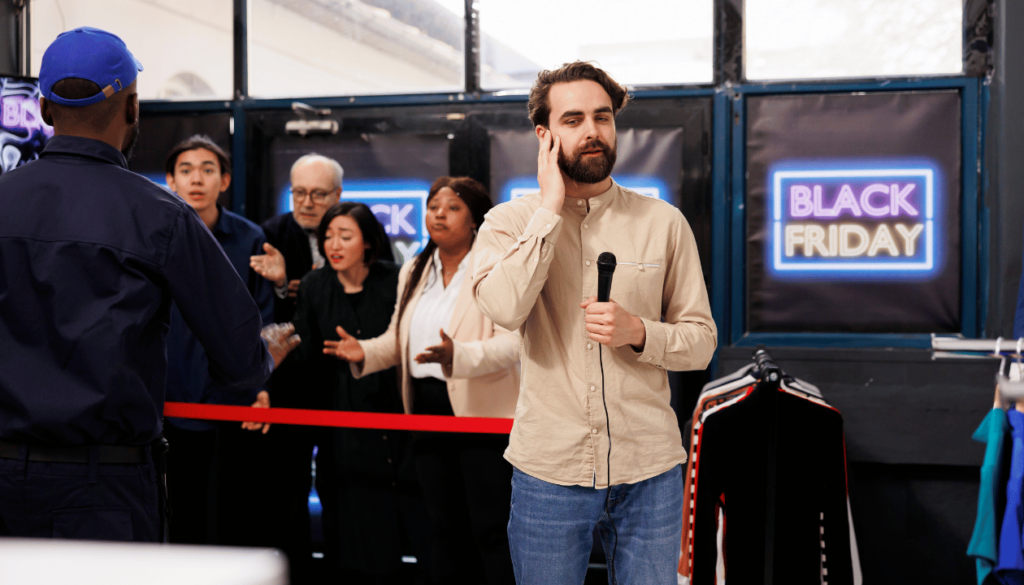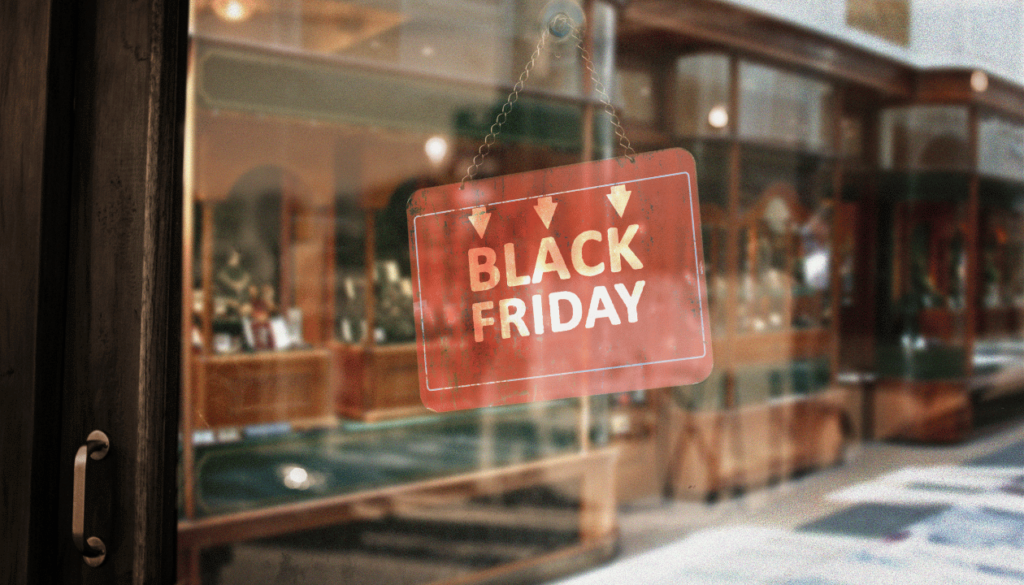

Black Friday, traditionally the day after Thanksgiving in the U.S., marks the start of the holiday shopping season with enticing discounts and massive sales.
Over the years, this shopping frenzy has expanded far beyond the U.S. and made its mark in many countries, including those in the Spanish-speaking world.
In Spain, Latin America, and U.S. states with strong Spanish influence, Black Friday has become an essential part of the consumer landscape. However, the way it is celebrated and integrated into local culture varies across these regions.
In this blog, we’ll explore how Black Friday has evolved in these areas and the unique elements that make it a key event for Spanish-speaking consumers.
The Spread of Black Friday: A Global Phenomenon
Black Friday’s origins trace back to the U.S. in the 1950s, where it was initially used to describe the heavy traffic that occurred the day after Thanksgiving.
Retailers later transformed the day into a shopping extravaganza, offering significant discounts, that attracted huge crowds and marked the beginning of the holiday shopping season.
As globalization expanded, Black Friday traveled beyond U.S. borders and into countries with strong ties to American commerce and culture.

Today, Black Friday is celebrated in various parts of the world, from Europe to Latin America. Spanish-speaking countries and regions, in particular, have embraced this tradition with open arms, though each has adapted it to their local customs and consumer preferences.
Black Friday in Spain: A Relatively New Tradition
Black Friday didn’t make its way to Spain until 2012, but since then, it has grown exponentially. Spanish consumers have quickly become avid participants in big day, taking advantage of the deep discounts and savings offered by both brick-and-mortar stores and online retailers.
In major cities like Madrid, Barcelona, and Valencia, the excitement surrounding Black Friday rivals that of the U.S. Spanish retailers offer discounts that sometimes make black days to stretch beyond a single day, with black days and turning it into a week-long event. It has also given local businesses an opportunity to capitalize on increased consumer demand during this period.
How It’s Different in Spain:
While Black Friday in the U.S. is traditionally a one-day event, in Spain, it’s often expanded to last for several days. Additionally, the cultural significance of Thanksgiving doesn’t exist in Spain, so the event is solely focused on shopping. Despite these differences, Black Friday has become an eagerly anticipated event in the Spanish calendar.
Spanish Brands Leading the Charge
Some of Spain’s most iconic brands have embraced Black Friday, using it as a way to attract shoppers. Companies like Zara, El Corte Inglés, and Mango lead the charge, offering deep discounts both online and in their physical stores.
El Corte Inglés, Spain’s largest department store, has particularly capitalized on Black Friday, by offering discounts and deals across various categories including: fashion items, electronics, and home goods.
In recent years, Spanish consumers have shown a growing preference for online shopping during Black Friday, especially after the COVID-19 pandemic.
Major e-commerce platforms like Amazon Spain and local retailers have seen increased sales, as shoppers prefer to avoid the crowds in stores and shop from the comfort of their homes.
Black Friday in Latin America: A Growing Influence
Latin America, particularly countries like Mexico, Argentina, and Colombia, has seen a growing embrace of Black Friday. While not every Latin American country has fully adopted the tradition, its influence continues to grow, with both global and local retailers participating in the event.
In Mexico, Black Friday coincides with El Buen Fin (The Good Weekend), a shopping event that takes place in November and has been dubbed Mexico’s version of Black Friday.
El Buen Fin offers widespread discounts in a similar fashion, with retailers promoting exclusive deals across various categories.
In Argentina, Black Friday has gained momentum, especially with the rise of e-commerce platforms like Mercado Libre, which mimic the strategies used by U.S. retailers.
Why It Works in Latin America
Black Friday has been embraced in Latin America for several reasons. One key factor is the region’s economic ties with the U.S., where many consumers have already been exposed to the concept of Black Friday through cross-border shopping or online platforms.
Additionally, Latin American consumers are keen to find discounts and deals during the holiday season, making Black Friday an attractive opportunity for both shoppers and retailers.
Black Friday in U.S. States with Strong Spanish Influence
In the U.S., states with large Hispanic populations such as California, Texas, Florida, and New Mexico, celebrate Black Friday with a unique cultural flair.
These states offer a blend of traditional Black Friday shopping with a touch of Hispanic influence, from bilingual marketing campaigns and special offers to family-centered shopping experiences.
Hispanic Communities and Black Friday
In these states, Hispanic shoppers have become a significant target audience for retailers. Bilingual advertisements and promotions tailored specifically to Spanish-speaking consumers have become common, as retailers recognize the spending power of this demographic.
Family is a key component of Hispanic culture, and this is reflected in Black Friday shopping, with many Hispanic families making it a group activity, similar to other holidays.
Retailers in these states often adapt their Black Friday offerings to include products and services that appeal to Hispanic shoppers, such as deals on food, clothing, electronics gadgets, toys, and home goods that are culturally relevant to their communities.
E-Commerce and the Digital Transformation of Black Friday
One of the major changes in Black Friday shopping over the past decade has been the rise of e-commerce. This shift has been particularly notable in Spain and Latin America, where consumers are increasingly turning to online platforms for their Black Friday purchases.
In Spain, Amazon has become a dominant player during Black Friday sales, often offering deals at prices that rival or surpass those of local retailers. Similarly, Mercado Libre has emerged as a major player in Latin America, providing a platform for both international and local retailers to offer Black Friday deals.

Influencers and Online Promotions:
In recent years, Spanish and Latin American influencers have played a significant role in promoting Black Friday deals. Social media campaigns and influencer collaborations have become an effective way for brands to reach younger, tech-savvy consumers, further driving the popularity of online shopping during this event.
Black Friday vs. Cyber Monday: A Double Event
While Black Friday remains the main event, Cyber Monday has gained considerable traction in Spanish-speaking regions as well. Cyber Monday focuses exclusively on online sales, providing another opportunity during black week for retailers to compare prices, offer discounts and drive consumer engagement.
In Spain and Latin America, the line between Black Friday and Cyber Monday is often blurred, with many retailers extending their promotions across both events. This trend has created a week-long shopping extravaganza start early on, known as the “Black Week” in Spain, perfect time where consumers can find deals both in-store and online.
Smart Tips for Black Friday Shopping in Spain and Latin America
Here are a few tips for making the most out of Black Friday in Spanish-speaking countries:
- Plan Ahead: Many retailers release their Black Friday deals in advance. By planning your purchases early, you can avoid missing out on popular items.
- Focus on Popular Categories: Electronics, fashion, and home goods tend to have the best deals during Black Friday in Spain and Latin America.
- Shop Online: If you want to avoid the crowds, consider shopping online. Platforms like Amazon, El Corte Inglés, and Mercado Libre offer extensive deals during Black Friday.
The Future of Black Friday in Spanish-speaking Countries
As Black Friday continues to grow in popularity across Spain and Latin America, it’s clear that this shopping holiday is here to stay.
With the rise of e-commerce, the influence of social media, and the increasing participation of both global and local retailers, Black Friday is evolving to meet the demands of Spanish-speaking consumers.
In the coming years, we can expect to see more localized versions of Black Friday, as retailers adapt their strategies to fit the unique preferences and shopping habits of Spanish-speaking regions.
Whether it’s through extended sales periods, online price promotions, or special events tailored to local cultures, Black Friday will continue to be a major event for consumers in Spain, Latin America, and beyond.
A New Way to Experience Black Friday
Black Friday has come a long way from its American roots, turning into a global event that Spanish-speaking countries have embraced with their own flair. Whether you’re strolling through the bustling markets of Madrid or hunting for amazing deals online, this shopping phenomenon has something to offer everyone.
But why stop at just shopping? Imagine experiencing Black Friday in Spain while living like a local! With our Spanish Homestay Immersion Programme (SHIP), you can dive into the language and culture, and score some amazing Black Friday gifts and deals along the way.
It’s not just a lesson in Spanish—it’s a full immersion into Spain’s vibrant life during one of its most exciting shopping moments. Ready to take your Black Friday experience to the next level? Join us and live it firsthand!
1. What is Black Friday, and why is it significant in the Christmas shopping season?
Black Friday marks the beginning of the Christmas shopping season, offering incredible discounts and Black Friday promotions on a wide range of products, making it the perfect time to find amazing deals on Christmas gifts.
2. How can I make the most of Black Friday promotions in the U.S. states with a strong Hispanic influence?
In states like California and Texas, look for bilingual advertisements tailored for Spanish-speaking shoppers. Shopping with family is also a popular tradition, making Black Friday a shared cultural experience.
3. Can I enjoy the Black Friday shopping experience while exploring Spain?
Absolutely! The Spanish Homestay Immersion Program (SHIP) allows you to live like a local while experiencing Black Friday in Spain. Dive into the culture, shop for Christmas gifts, and learn Spanish all at once.
4. Which categories have the best Black Friday discounts in Spanish-speaking regions?
Electronics, fashion, and home goods are some of the most popular categories during Black Friday. These categories often feature fine amazing deals both online and in physical stores.
5. Why is the last Friday of November referred to as Black Friday?
The last Friday of November is called Black Friday because of its U.S. origins, marking the day after Thanksgiving. Retailers coined the term to describe the shopping frenzy that kicks off the holiday season.








